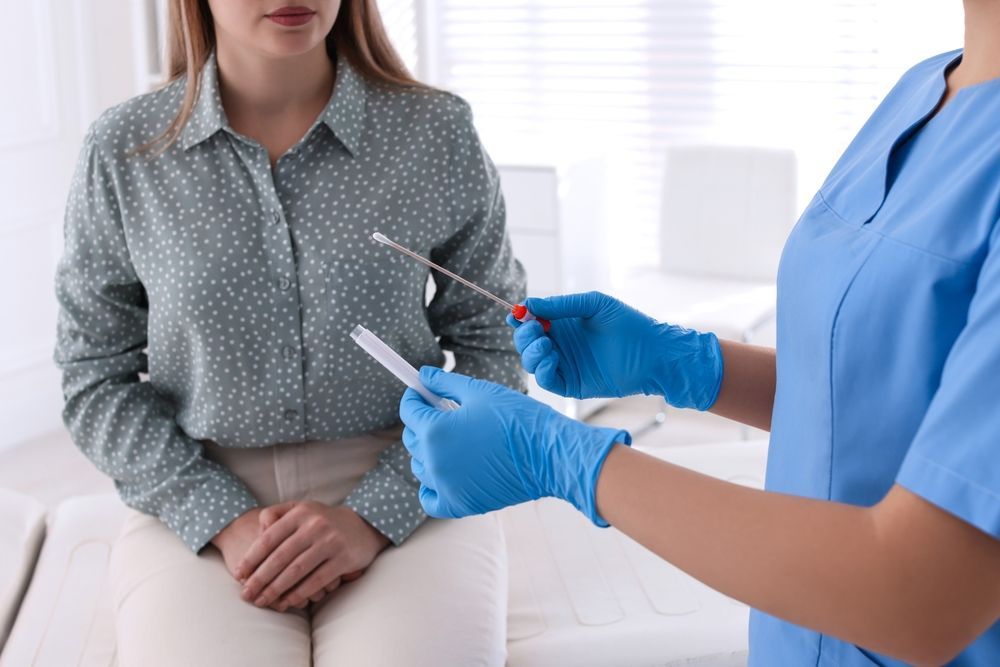Drug Resistant Gonorrhea: Everything You Need to Know
Share this Article:

Gonorrhea is becoming increasingly common, with nearly 680,000 new cases in 2020 alone.[1] To make matters worse, this pathogen has evolved to resist the medications most commonly used for treatment. Knowing what this condition is, how it's spread, and how it can be treated is imperative if there is any possibility that you or your partner could become pregnant.
What is Gonorrhea?
Gonorrhea is a sexually transmitted disease (STD), which means that it spreads via sexual contact. It is presently the second most common sexually transmitted infection (STI) in the state of California.[2] Most people with an infection are between the ages of 15 and 49.[3]
What are the Symptoms & Dangers of Gonorrhea?
Many people who contract gonorrhea may experience debilitating symptoms such as pain when urinating or having a bowel movement, bleeding between menstrual periods, painful and/or swollen testicles, and itching and/or bleeding in the anal area. Others only experience mild symptoms while many people have no symptoms at all.[4]
Gonorrhea poses long-term dangers, if you have a mild or asymptomatic case. It can cause pelvic inflammatory disease, which not only causes pain but also internal abscesses and damage to the fallopian tubes. Furthermore, the condition increases a woman's odds of having an ectopic pregnancy, premature birth, or miscarriage. Men who have untreated gonorrhea may develop epididymitis, an inflammation of the tubes holding the testicles in place. Both men and women may develop a disseminated gonococcal infection, which is an infection of gonorrhea that spreads to the blood. This condition can cause serious health problems such as arthritis or dermatitis. In some instances, it can even be life-threatening.[5]
What Drugs Are Used To Treat Gonorrhea?
Gonorrhea is a bacterial infection. If you're diagnosed with the disease, your doctor will choose the medication that best meets your needs. CefTRIAXone is administered as a shot, while Azythromycin and Doxycycline are tablets to be taken orally. Medical professionals may prescribe one of these medications or both CefTRIAXone and Azithromycin. [5]
How did Gonorrhea Become a Major Global Problem?
Gonorrhea has been around for at least the last 3,500 years. [6] However, there are several factors that have led to the condition becoming a greater problem than it was in times past. International travel makes it possible for people with the condition to move freely from one part of the world to another. The fact that many people have no symptoms or mild symptoms that can be easily mistaken for a urinary tract infection, makes it possible for carriers of the disease to inadvertently spread it to other people. Even so, the primary reason gonorrhea has become such a big problem of late is that drug resistant gonorrhea strains have emerged and become increasingly prevalent.
How did This STD Become Drug Resistant?
The World Health Organization explains unrestricted access to antimicrobials, overuse of antibiotics, using the wrong antibiotics to treat a bacterial infection, and using poor quality antibiotics have given rise to antibiotic-resistant gonorrhea strains. Furthermore, when gonorrhea infections in the throat and rectum interact with gonorrhea bacteria in the genitals, the result is a new, powerful strain of gonorrhea that can be difficult if not impossible to treat.

Japan was the first country to report a strain of gonorrhea that was impervious to Cefixime, a commonly used antibiotic at the time. Later, Japan, Australia, and several countries in Europe reported a strain of gonorrhea that could not be cured by either Ceftriaxone or a combination of Ceftriaxone with either Azithromycin or Doxycycline.[7] The antibiotic-resistant strains have since spread worldwide, causing problems for medical health centers and victims alike. Ceftriaxone and Azithromycin are last line of defense antibiotics, which means there are not more powerful drugs to choose from.
What are Pharmaceutical Companies Doing in Response?
The pharmaceutical industry has been slow to develop new antibiotics to combat drug resistant gonorrhea strains. However, in November 2023, the Global Antibiotic Research & Development Partnership, in collaboration with Innoviva Specialty Therapeutics announced that a new antibiotic, Zoliflodacin, performed well in clinical trials. Innoviva plans on asking for FDA approval as quickly as possible. The introduction of a new antibacterial medication could be a game-changer for those combating gonorrhea worldwide, as it could not only reduce the number of cases but also simplify treatment, which presently consists of both injections and oral medications.[8] However, it should be noted that side effects are unknown, and this new drug may not get FDA approval!
How You Can Avoid Getting Gonorrhea
Gonorrhea spreads via sexual activity. Using a condom can lower the odds of infection, but is far from perfect. Abstinence until marriage, and practicing monogamy with your spouse is a guarantee that you will not have to worry about gonorrhea. Being monogamous can limit potential spread as well. However, monogamy requires the commitment of two people. There is no guarantee your partner will be monogamous as well. It’s wise to get tested for gonorrhea every year. Doing so ensures you get treatment early on and lowers the odds that you will inadvertently spread the infection to someone else.
The Importance of STD/STI Tests
If you have sex with more than one partner, have been assaulted, have a partner who has been diagnosed with an STI, or have HIV, you'll want to be tested for STIs on a regular basis. Additionally, you should be screened for STIs if you are pregnant or if you or your partner are planning on getting pregnant. If you're pregnant, the result of an STD/STI test could affect your medical care options. You'll need treatment even if you want an abortion, as having a medical procedure while you're infected with an STD increases the odds of developing pelvic inflammatory disease. If you're planning on giving birth, your doctor will not only provide treatment for your condition but also consider performing a C-section to ensure the newborn doesn't come in contact with the pathogen.
At Pregnancy Care Clinic, we offer fast,
free STD/STI screening to test for gonorrhea as well as other common sexually transmitted diseases. We don't charge a fee for our services, and the results are 100% private. At the same time, if the results are positive, we can refer you to a specialist who can provide you with a treatment plan to meet your needs. If you or someone you know could benefit from our services, feel free to either
get in touch with us to schedule an appointment or pay us a visit at your convenience.




